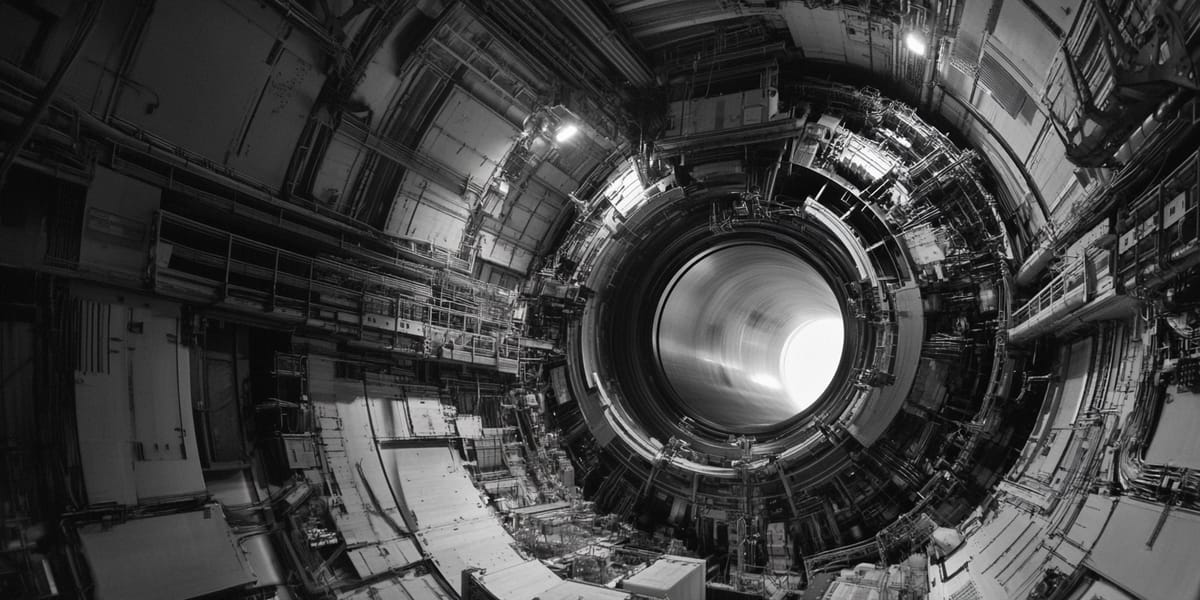Google Partners With Commonwealth Fusion Systems For First Commercial Fusion Energy Deal

CNBC reports that Google announced a partnership with Commonwealth Fusion Systems on Monday, representing the tech company's first commercial commitment to fusion energy. The Massachusetts Institute of Technology spinoff will provide Google with 200 megawatts of clean fusion power from its planned ARC power plant in Chesterfield County, Virginia. The agreement comes as Google faces mounting energy demands from artificial intelligence operations while pursuing carbon neutrality goals by 2030.
Commonwealth Fusion Systems expects its ARC facility to generate 400 megawatts of carbon-free electricity in the early 2030s. This output capacity could power approximately 150,000 homes or large industrial facilities. Google also increased its financial stake in the Devens, Massachusetts-based company, though neither party disclosed specific financial terms of the arrangement.
AI Data Centers Drive Energy Investment Strategy
Google's fusion partnership reflects broader industry challenges with AI-powered data center energy consumption. TechCrunch reveals that Google announced a $20 billion renewable energy initiative in December 2024, partnering with Intersect Power and TPG Rise Climate to develop gigawatt-scale data centers powered by clean energy sources.
The company's 2024 environmental report showed a 13% increase in greenhouse gas emissions, primarily driven by data center energy consumption and AI operations. Data Centre Magazine notes that Google's total emissions have risen 48% since 2019, despite maintaining 100% renewable energy matching for its global operations.
Energy demand projections suggest data centers could account for 6.7% to 12% of total U.S. energy consumption by 2028, up from 4.4% in 2023. CNBC reports that tech companies are exploring hydrogen and nuclear alternatives to meet unprecedented AI infrastructure demands.
Commonwealth Fusion Systems Technology And Timeline
Commonwealth Fusion Systems has raised over $2 billion since its 2018 founding, making it the most funded private fusion company globally. TechCrunch reports the company achieved a construction milestone in March 2025 with the installation of its SPARC demonstration reactor's cryostat base in Devens, Massachusetts.
The company uses high-temperature superconducting magnets to create smaller, more cost-effective tokamak fusion systems compared to traditional approaches. SPARC aims to achieve net energy gain from fusion reactions by 2027, proving the viability of the technology before ARC's commercial deployment. MIT News describes ARC as the world's first grid-scale commercial fusion power plant.
CFS reported raising over $1 billion in Series B2 funding in May 2025, with participation from a major data center developer, according to Axios. This funding round values the company at over $8 billion, representing substantial growth from its previous $5 billion valuation in 2021.
Fusion Industry Competition And Market Context
Google's deal represents the second major corporate fusion power purchase agreement, following Microsoft's 2023 commitment to buy 50 megawatts from Helion Energy by 2028. The fusion industry has attracted over $7 billion in private investment, with more than 45 companies pursuing commercial fusion energy according to the Fusion Industry Association.
The Washington Post reports that tech companies and investors view fusion as potentially transformative for global energy supply, offering weather-independent, 24/7 power generation without carbon emissions or long-term radioactive waste.
The broader energy sector faces mounting pressure from tech companies' expansion plans. Amazon announced a $10 billion investment in North Carolina data centers in June 2025, while multiple companies pursue nuclear and fusion partnerships to meet growing electricity demands from AI infrastructure development.
Industry experts project fusion energy could become commercially viable in the 2030s, though skeptics question whether companies can meet ambitious timelines given regulatory, technical, and manufacturing challenges. Google's partnership with Commonwealth Fusion Systems positions both companies at the forefront of a potentially revolutionary energy technology that could reshape global power generation.
Related Reading on Morrow Report
Alternative Financial Systems Index provides comprehensive analysis of financial systems operating outside traditional banking infrastructure. This detailed index examines transaction costs, user adoption rates, and network effects across decentralized finance, community banking, blockchain currencies, and peer-to-peer financial platforms. Readers will gain insights into how alternative systems achieve higher efficiency through reduced intermediaries, faster access times, and innovative trust mechanisms that could inform understanding of how emerging technologies like fusion energy might disrupt established industries.




